Patriarch Kirill: Putin's spiritual leader who ''blesses'' war in Ukraine

The Russian invasion of Ukraine is having repercussions beyond the military and political sphere. In addition to the economic effects - something that could be foreseen due to Russia's importance in energy and Ukraine's role in global grain exports - the war is also provoking a strong clash within the Orthodox Church.
At the end of May, the Council of the Ukrainian Orthodox Church of the Moscow Patriarchate (UOC-MP) declared its full independence from Russia due to the stance of the head of the Orthodox Church on the war in Ukraine. As the Ukrainian religious institution, led by Metropolitan Onufry, stressed, the Council "condemns the war as a violation of God's commandment `You shall not kill!' and expresses its disagreement with the position of Patriarch Kirill of Moscow and all Russia regarding the war in Ukraine".
Russia struck Ukraine's capital Kyiv with missiles for the first time in more than a month. The attack was a clear warning from Russia to Ukraine which may soon get long-range artillery from the West.
— Business Today (@business_today) June 6, 2022
Watch: https://t.co/vzFZmN6hGQ | #Ukraine #Russia #Crisis #War #VladimirPutin pic.twitter.com/rQp9DoqUoi
But this is not the first time the pillars of the Orthodox Church have been shaken. In 2018, another schism occurred within the institution, when the Ukrainian Orthodox community broke ties with Russia after more than 300 years of relations, giving rise to the Ukrainian Orthodox Church (UOC), led by Metropolitan Epiphanius I.
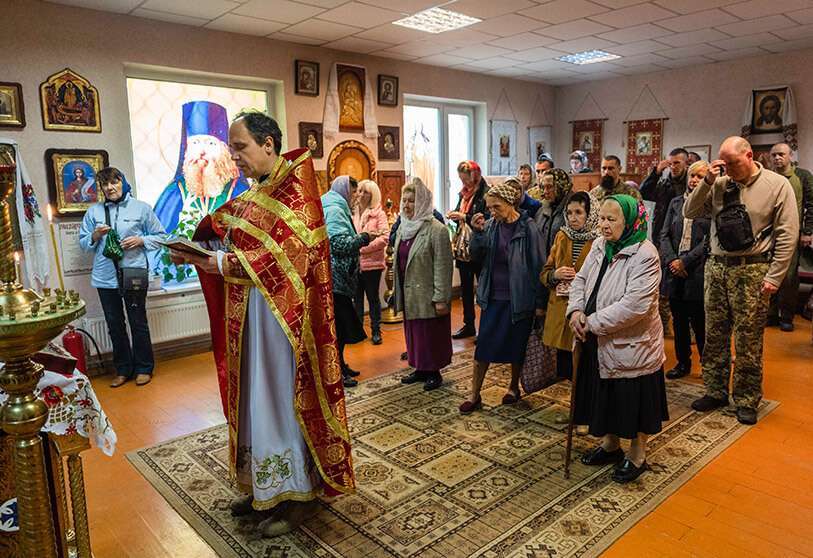
The current controversy stems from the stance that Patriarch Kirill (St. Petersburg, 1946) has maintained since Russia launched its invasion of Ukraine on 24 February. The leader of the Russian Orthodox Church, elected in 2019, has supported the aggression since its inception, claiming that this war is aimed at combating "external and hostile dark forces".
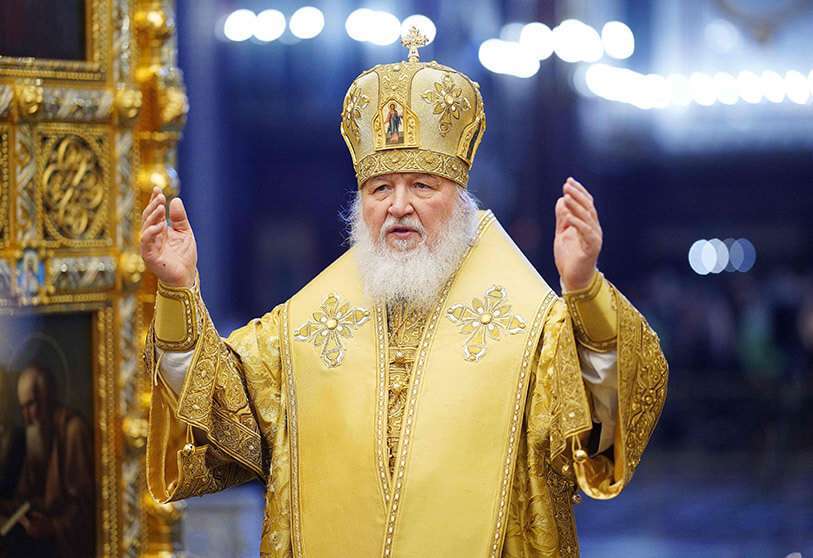
"We must do everything possible to preserve peace between our peoples and, at the same time, protect our common historical homeland from all these actions from outside that can destroy this unity", Kirill declared in a Sunday sermon shortly after the invasion of Ukraine began.
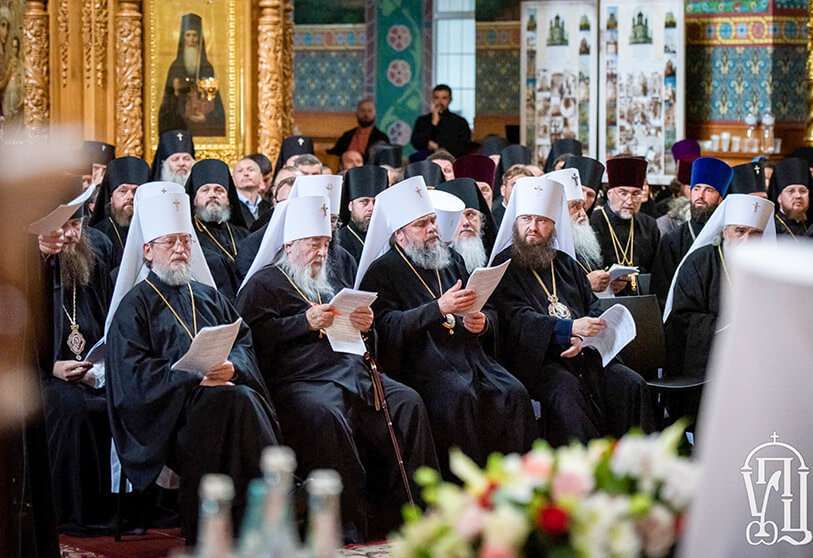
Since Russia launched the war in its neighbouring country, the religious leader has also alluded to the LGTBI+ community to justify the aggression. Patriarch Kirill noted that the war "does not have a physical meaning, but a metaphysical meaning", and is about finding out "which side of humanity God will be on", referring to the division between Western governments that allow gay pride events and those critical of gay pride, represented by Russian-backed separatists in eastern Ukraine.
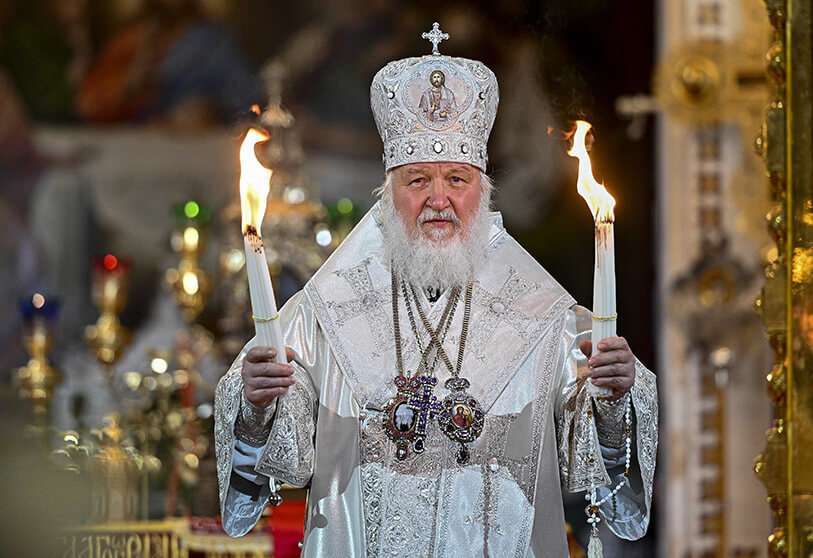
"Pride parades are designed to demonstrate that sin is a variation of human behaviour. That's why, in order to join the club of those countries, it is necessary to have a gay pride parade," Kirill explained.
According to the head of the Orthodox Church, gay pride parades are something that Ukraine's separatist regions have "fundamentally rejected" despite attempts to "destroy what exists in the Donbas" over the past eight years. "In the Donbas there is a rejection, a fundamental rejection of the so-called values offered today by those who seek world power," he stressed.
Donetsk region local authorities said a missile strike killed three civilians and injured six in the town of Sloviansk in eastern Ukraine, as residents were seen clearing rubble inside their apartments pic.twitter.com/HcEwp3TO6G
— Reuters (@Reuters) May 31, 2022
"If humanity accepts that sin is not a violation of God's law, if humanity accepts that sin is a variation of human behaviour, then human civilisation will end there," he added. The Orthodox patriarch's support for the war is not just in sermons, Kirill has even given his blessing to Russian soldiers who have moved into Ukraine.

Kirill has thus become the spiritual leader Moscow needs to justify the war in Ukraine. For years, the Orthodox has shown his support for Vladimir Putin's government, describing it as 'a miracle of God' and supporting his re-election and military intervention in Syria alongside Bashar Al-Assad.
However, the ties between the Russian state and the Orthodox Church go back a long way, dating back to the fall of the Soviet Union. As Andreja Bogdanovski, a PhD candidate at the University of Buckingham, UK, where he studies church autocephaly movements across Eastern Europe and the Balkans, explains, with the collapse of Soviet communism came "a revival of the Russian Orthodox Church largely influenced by state support".
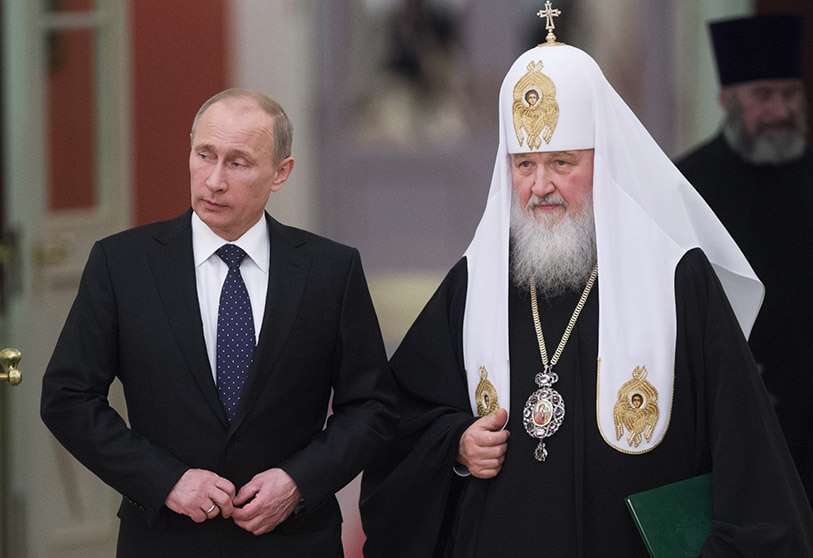
Moscow chose to boost the role of the Church because the two have common goals and interests. "They are interdependent on many questions. The Russian state has in many ways weaponised Orthodoxy to aid its own goals," says Bogdanovski.
The Putin government, in particular, has used the Church to control the country politically and socially, "based on Orthodox values that it also exports abroad in the form of soft power". According to Bogdanovski, the Balkans and Eastern Europe are regions where the Kremlin and the Russian Orthodox Church seek to consolidate their influence, although he stresses that recently they have also been interested in and focused on Africa.
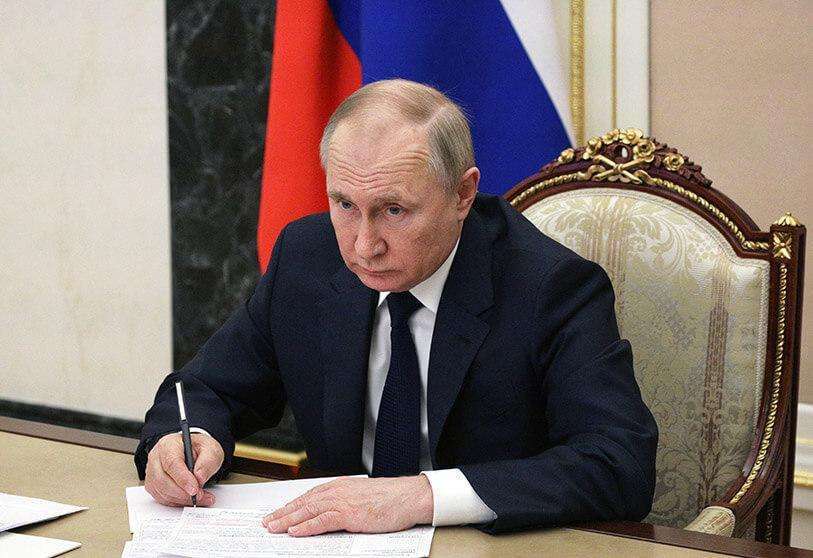
Regarding the current war in Ukraine and the role of Kirill, the expert asserts that the patriarch's support is another example of how the Russian state uses the Church and its values to justify its invasion."The Church has been instrumental in spearheading the ideals of the "Russian world" (Russkiy Mir) that Russian state officials often cite to validate aggression in Ukraine," he notes.
Bogdanovski also alludes to "Kirill's bizarre attempt to justify Russia's invasion of Ukraine by talking about pride parades", an aspect that, according to the expert, "is another effort to fuel the anti-Western rhetoric needed to sustain Putin's invasion of Ukraine and boast of domestic support".
?️ Russian Kamov Ka-52 attack helicopter flying low in the direction of Severodonetsk.#Ukraine️ pic.twitter.com/l9YJtRdLXh
— GeoInsider (@InsiderGeo) June 7, 2022
Because of Kirill's great influence and his stance on the war, the EU considered sanctioning him as it did other military, political or business figures close to the Kremlin. However, the refusal of Hungarian President Viktor Orbán saved the patriarch from European punishment.
Brussels justified its intention to sanction him by pointing to his relationship with the Russian regime. "Kirill is a long-time ally of Putin", whom it considers "the only defender of Christianity in the world", explains a text on the sixth package of sanctions. The EU also recalls Kirill's support for the war and some of his controversial statements during his sermons.

However, despite Kirill's links to the Kremlin and his stance on the war, the refusal of the nationalist Orbán has prevented the imposition of sanctions on the Orthodox patriarch. Due to its heavy energy dependence on Russia, Hungary has chosen to maintain a different policy towards Moscow than its European partners. Hungary, along with the Czech Republic and Slovakia, has been exempted from the partial embargo on Russian oil announced by Brussels at the end of May.
The Hungarian leader had previously announced that he would not approve sanctions against Russian energy. Similarly, in mid-May, as the EU worked on the sixth sanctions package, Orbán stressed that he would not support sanctions against religious leaders, including Patriarch Kirill.
Several media outlets have pointed out that the Hungarian veto is based on religious freedom, although for Bogdanovski it is merely an effort by Orbán to maintain balance over the war in order to safeguarding his popularity and avoid direct confrontations with Putin. Equally important is Orbán's need to be seen as a constructive actor within the EU by not sabotaging every sanctions package against Russia.
???? EU foreign policy chief Josep Borrell has criticised Hungary's Prime Minister Viktor Orbán for comparing the bloc's plan to gradually ban Russian oil imports to "dropping an atomic bomb on Hungary's economy".
— euronews (@euronews) May 6, 2022
"This is unacceptable," Borrell told Euronews. pic.twitter.com/BzTmbbdPc2
Just as the war has caused a sharp clash within the Orthodox Church, in recent weeks small rifts have also emerged within the Catholic Church over Pope Francis' relationship with Patriarch Kirill. Last May, the Catholic leader congratulated his Orthodox counterpart on the occasion of St. Cyril's Day, a particularly important saint for the Slavic nations. In his greetings to Kirill, the Pope stressed "the value and dignity of every human life".
Since the beginning of the invasion, the Vatican has decided to maintain cordial relations with the Russian Orthodox Church, which has caused unease within Catholicism. According to AP, the president of the Polish bishops' conference, Archbishop Stanislaw Gadecki, has called on the Vatican to change its "naive and utopian" policy after returning from a visit to Ukraine. Gadecki recalled the importance of the Holy See supporting Ukraine "at all levels and not being carried away by utopian thoughts".

In fact, Orthodox churches are among the targets of Russian attacks. According to Ukrainian President Volodimir Zelensky, 113 churches have been hit by shelling since the beginning of the invasion. "Some of them withstood the Second World War, but they did not withstand the Russian occupation," the Ukrainian leader declared.
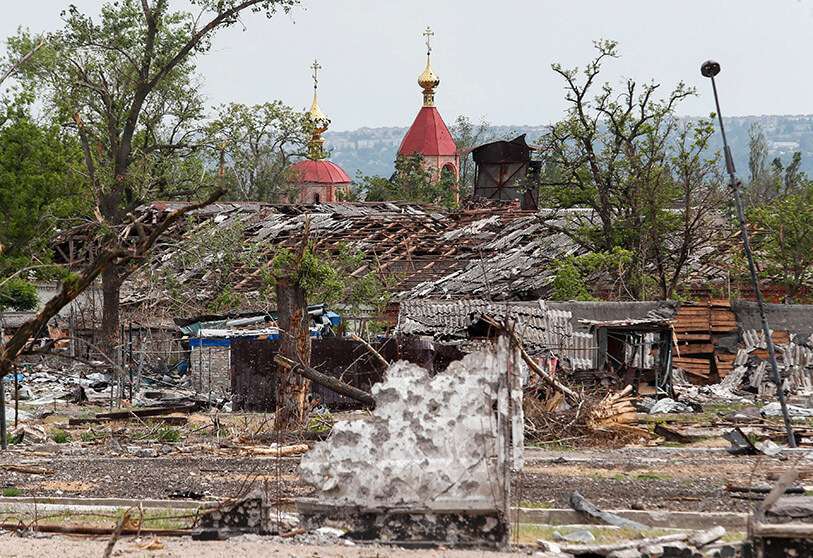
This damage to Orthodox churches, coupled with Patriarch Kirill's stance, will only deepen the rift between the Ukrainian and Russian Orthodox communities. "Just as the Russian invasion of Ukraine prompted new NATO and EU enlargement waves it may well be the case that the Russian Orthodox Church loses completely any influence it claims to have in Ukraine," concludes Bogdanovski.








